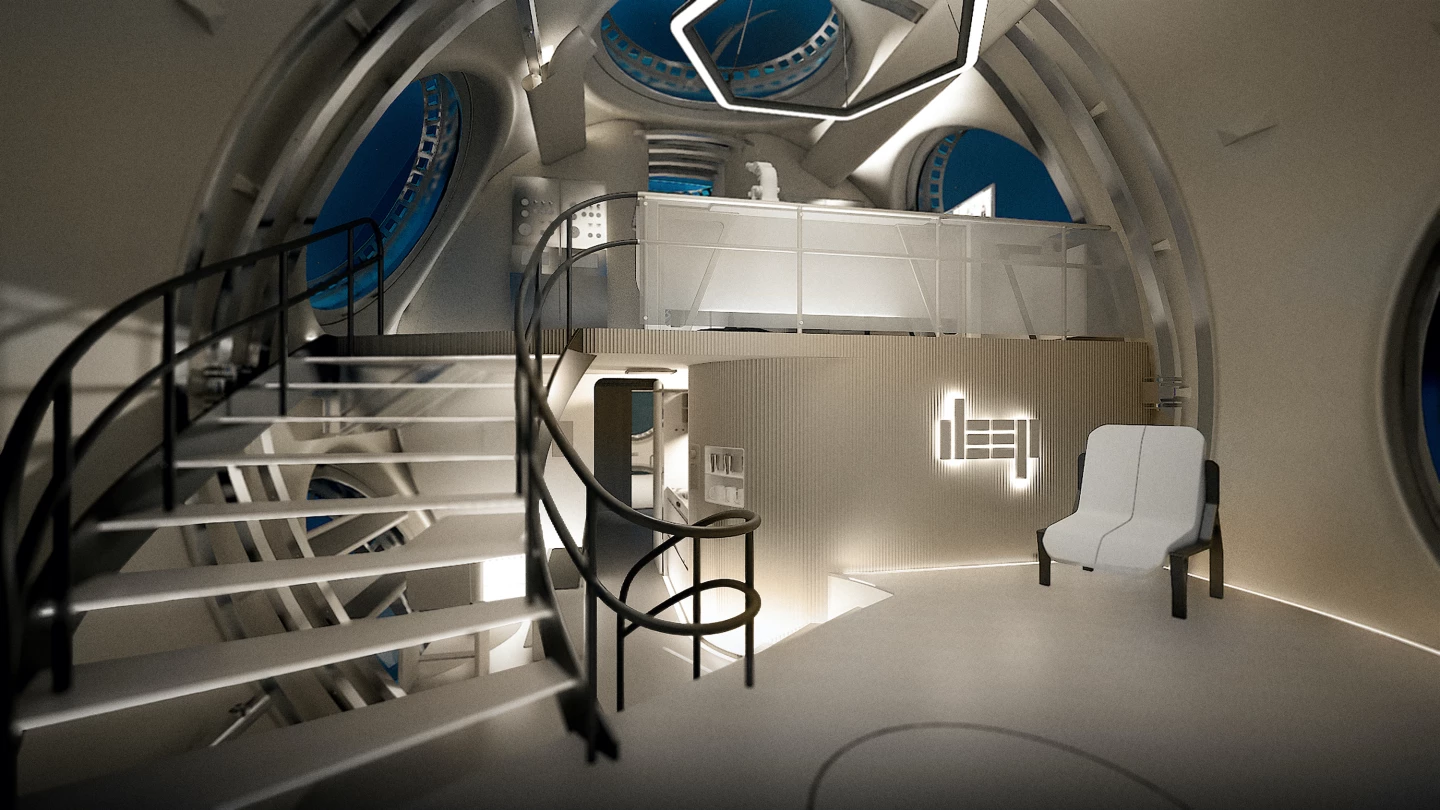A UK team has revealed plans to build an incredibly ambitious underwater habitat named Sentinel. Assuming it goes ahead, it would function a bit like the International Space Station – but in water, instead of orbit – and could revolutionize deep sea research by allowing scientists to live underwater for extended periods in relative comfort.
The project is being led by the appropriately named Deep, an ocean technology and exploration company with a self-stated goal to 'Make Humans Aquatic,' and is slated to be installed off the Southwest coast of the UK, with Wales mentioned as a likely destination, at a depth of roughly 200 m (around 656 ft), putting it in the Epipelagic Zone. Access would be gained by submersibles, and the base would be modular and moveable, so it could also be deployed elsewhere as needed.
"The lower limit of the Epipelagic Zone is the deepest point at which sunlight penetrates into the ocean and it's estimated that 90% of marine life is found in this zone," explained Deep's press release. "Being able to comprehensively explore the full extent of this part of the ocean rather than just performing incursions from the surface, will represent a step-change in the way scientists can observe, monitor, and understand the oceans.
"Following two years of intensive and pioneering research into innovative manufacturing processes and materials science, Deep is at the advanced stage of technical design and has commenced production. The Deep system offers a radically more effective way to live and operate underwater than has existed before. Previously, underwater facilities have been temporary and fixed-location. Deep's habitat is modular, scalable, autonomous, recoverable, re-configurable and re-deployable."

Considering they'd be in one of the most challenging environments possible on Earth, from the renders at least, scientists would live in surprising comfort. There would be research laboratories and communal areas, as well as small but well-stocked bedrooms with a single bed, storage space and even a TV for entertainment. The bathrooms would contain a shower, toilet and sink. It's not the Ritz, but it's a long way from the claustrophobic conditions associated with submersibles.
Deep hopes to ensure a permanent human presence under the oceans from 2027. There are massive hurdles to overcome to get to that stage though, including ensuring structural stability under the immense pressure at such depths and that the occupants have enough oxygen and power, to name just a few. According to Designboom, the team is working on a renewable power source and a large-scale bio-reactor to handle all waste. Deep says it's currently in talks with potential investors and partners to try and bring the project to completion.
Source: Deep











